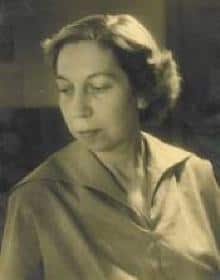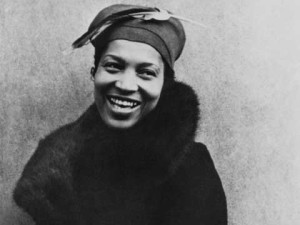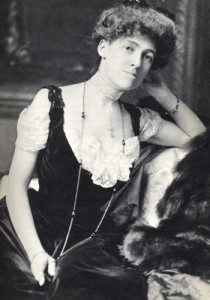Women make up almost 20% (59) of the authors on my updated Greatest Books list. To be honest, I’m impressed that the number is that high given the historical, financial, familial, and cultural obstacles that women face. Still, 20% pales in comparison to the fact that women constitute half of the population, both domestically and globally.
So I wanted to spend some time with the female segment of the Greatest Books list and see what I could discern.
First, here’s the complete list, sorted alphabetically by author last name:
| Year | Title | Author |
| 1815 | Emma | Austen, Jane |
| 1813 | Pride and Prejudice | Austen, Jane |
| 1931 | Years of Grace | Barnes, Margaret Ayer |
| 1996 | Ship Fever and Other Stories | Barrett, Andrea |
| 1938 | The Death of the Heart | Bowen, Elizabeth |
| 1847 | Jane Eyre | Bronte, Charlotte |
| 1847 | Wuthering Heights | Bronte, Emily |
| 2006 | March | Brooks, Geraldine |
| 1932 | The Good Earth | Buck, Pearl S. |
| 1927 | Death Comes for the Archbishop | Cather, Willa |
| 1923 | One of Ours | Cather, Willa |
| 1918 | My Antonia | Cather, Willa |
| 2011 | A Visit from the Goon Squad | Egan, Jennifer |
| 2012 | The Round House | Erdrich, Louise |
| 1925 | So Big | Ferber, Edna |
| 1984 | Victory Over Japan: A Book of Stories | Gilchrist, Ellen |
| 1942 | In This Our Life | Glasgow, Ellen |
| 2002 | Three Junes | Glass, Julia |
| 2010 | Lord of Misrule | Gordon, Jaimy |
| 1965 | The Keepers Of The House | Grau, Shirley Ann |
| 2003 | The Great Fire | Hazzard, Shirley |
| 1937 | Their Eyes Were Watching God | Hurston, Zora Neale |
| 1935 | Now in November | Johnson, Josephine Winslow |
| 2000 | Interpreter of Maladies | Lahiri, Jhumpa |
| 1961 | To Kill A Mockingbird | Lee, Harper |
| 1985 | Foreign Affairs | Lurie, Alison |
| 1998 | Charming Billy | McDermott, Alice |
| 1934 | Lamb in His Bosom | Miller, Caroline |
| 1937 | Gone With the Wind | Mitchell, Margaret |
| 1988 | Beloved | Morrison, Toni |
| 1954 | Under the Net | Murdoch, Iris |
| 1969 | Them | Oates, Joyce Carol |
| 1971 | The Complete Stories of Flannery O’Connor | O’Connor, Flannery |
| 1929 | Scarlet Sister Mary | Peterkin, Julia |
| 1966 | Collected Stories | Porter, Katherine Anne |
| 1994 | The Shipping News | Proulx, Annie |
| 1939 | The Yearling | Rawlings, Marjorie Kinnan |
| 1966 | Wide Sargasso Sea | Rhys, Jean |
| 2005 | Gilead | Robinson, Marilynne |
| 1977 | Blood Tie | Settle, Mary Lee |
| 1818 | Frankenstein | Shelley, Mary |
| 1995 | The Stone Diaries | Shields, Carol |
| 1021 | The Tale of Genji | Shikibu, Murasaki |
| 1992 | A Thousand Acres | Smiley, Jane |
| 1999 | In America | Sontag, Susan |
| 1969 | The Prime of Miss Jean Brodie | Spark, Muriel |
| 1970 | Collected Stories | Stafford, Jean |
| 2009 | Olive Kitteridge | Strout, Elizabeth |
| 2004 | The News from Paraguay | Tuck, Shirley |
| 1989 | Breathing Lessons | Tyler, Anne |
| 1983 | The Color Purple | Walker, Alice |
| 2011 | Salvage the Bones | Ward, Jesmyn |
| 1980 | Collected Stories of Eudora Welty | Welty, Eudora |
| 1973 | The Optimist’s Daughter | Welty, Eudora |
| 1921 | The Age of Innocence | Wharton, Edith |
| 1905 | The House of Mirth | Wharton, Edith |
| 1924 | The Able McLaughlins | Wilson, Margaret |
| 1927 | To the Lighthouse | Woolf, Virginia |
| 1925 | Mrs. Dalloway | Woolf, Virginia |
I tried sorting the table by year, but didn’t find any trends there.
When I tallied the authors by decade, the period from 1920-1939 seemed most rewarding, with eight “Greatest” female authors in each decade. By comparison, the ‘60s, ‘80s and ‘90s saw six “Greatest” female authors in each of those decades.
Interestingly, I’ve discussed before how the 1930s were the most prevalent decade overall on the Greatest Books list, with 1934 being the most represented year on the list. One could theorize that when women are given publishing opportunities and/or recognized for their accomplishments, the whole field of literature is better for it.

Next, I sorted the table by the source. That is, which award or listing got the author onto my compiled Greatest Books list.
- 29 of the 59 (49%) came from the Pulitzer Prize list
- 17 of the 59 (29%) came from the National Book Award list
- 14 of the 59 (29%) came from GreatestBooks.org, a grand list of lists
- 9 of the 59 (15%) came from the Modern Library
Note: the percentages won’t add up to 100% because many authors came from multiple sources.
This tells me that the Pulitzer is an important source of recognition for female authors, but let’s dive into each list a little further.
I have 86 Pulitzer Prize winners on my Greatest Books list, male and female. This means 34% of the winners have been female. With 70 authors on the National Book Award list, 24% are female. With 100 authors on my Modern Library list, only 9% are female. And with 95 authors on the GreatestBooks.org list, 15% are women.

In this light, the Pulitzer is still the most equanimous (if you can consider 34% anywhere near equal). In both lights, Modern Library has the longest way to go before managing any semblance of equality.
When I was compiling the Greatest Books list, I definitely hesitated to add Modern Library. No other publishing company was given such preference. But if I were to remove their books from my list, I’d lose 63 titles and I didn’t want to lose the likes of Rudyard Kipling, Aldous Huxley or V.S. Naipaul. In terms of women, I’d lose a Willa Cather title and Edith Wharton, among others. No thank you!
There are several names that appear multiple times on the “Greatest” female author list. They are:
- Willa Cather (3)
- Jane Austen (2)
- Eudora Welty (2)
- Edith Wharton (2)
- Virginia Woolf (2)

Pulling together this Greatest Books list has exposed me to several new (to me) female authors, including Edna Ferber, Flannery O’Connor, Shirley Hazzard, Eudora Welty, and Pearl S. Buck, in addition to Cather and Wharton, mentioned above
(There are others on the list that I have read and cherish and I look forward to meeting more female authors through their works!)
What do you think of the five authors with multiple titles on the list?
Do you think times are changing; will we see more literature – considered great – from female authors?
Which favorite female authors of your own would you want added to the list?